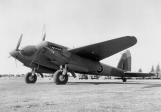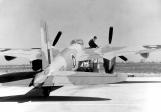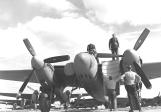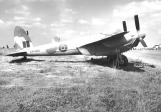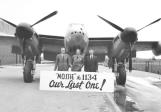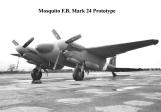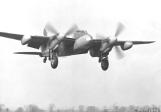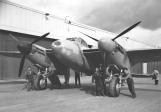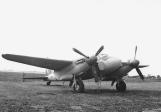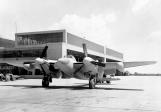20
The Mosquito aircraft was like a high strung thoroughbred and could be quite a handful for even the most skilled pilot. British experience with the type proved that a dual control trainer version of the type would be highly desirable. This resulted in the T. Mark III model, based on the Mosquito fighter design.Some 24 of these T. IIIs were sent to Canada in 1943 for the Operational Training Units (OTUs) in Nova Scotia, and to convert ferry pilots. This was not enough, however, so de Havilland Canada was asked to produce some. Coincidentally, there was a shortage of Hispano cannon, and some fighter bombers were stuck on the ground waiting for this equipment.
The first six trainers were T. Mark 22s modified from available F.B. XXIs. By 1944, the improved Packard Merlin 225 engine was coming online, and this resulted in the T. Mark 27, about 47 of which were built. This model and the definitive T. Mark 29 were based on the F.B. 26 fighter bomber. About 37 T. 29s were constructed, some of them going to the RAF.
